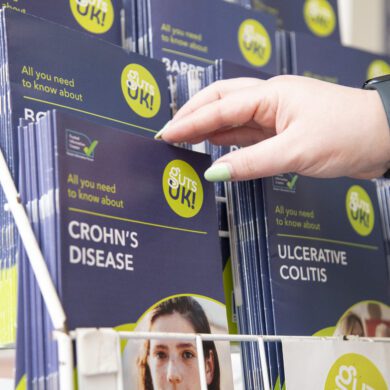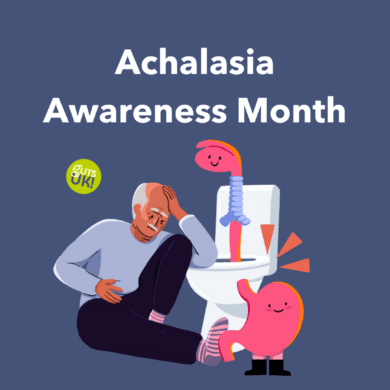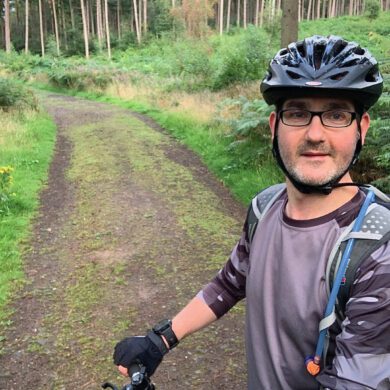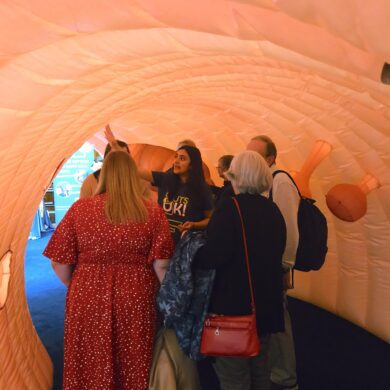Stephen’s Story – Achalasia
"In 2021, I began to struggle with swallowing. I thought I was eating too quickly or that it could be down to what I was eating."
Tell us a little about yourself
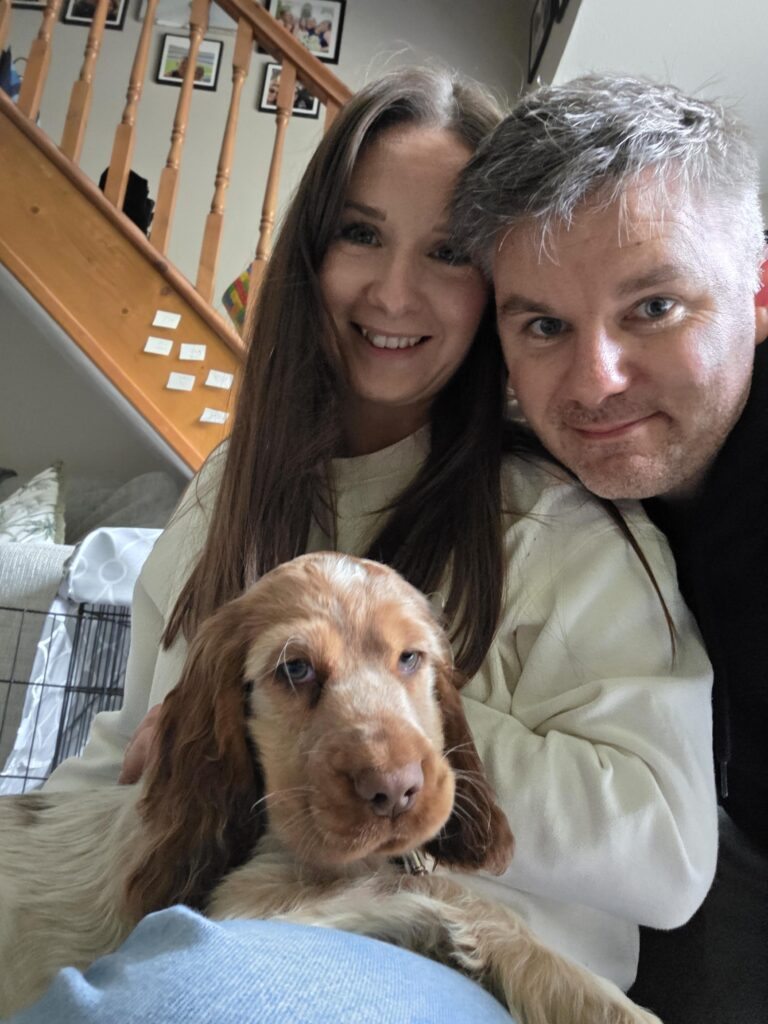
“I’m Stephen, and I’m 38 years old. I live near Portsmouth and my job involves testing products to ensure they are safe and compliant. When I’m not working, I love gaming, Lego and spending time with my family, including our new puppy, Percy, who is a Cocker Spaniel.”
When did your achalasia symptoms begin?
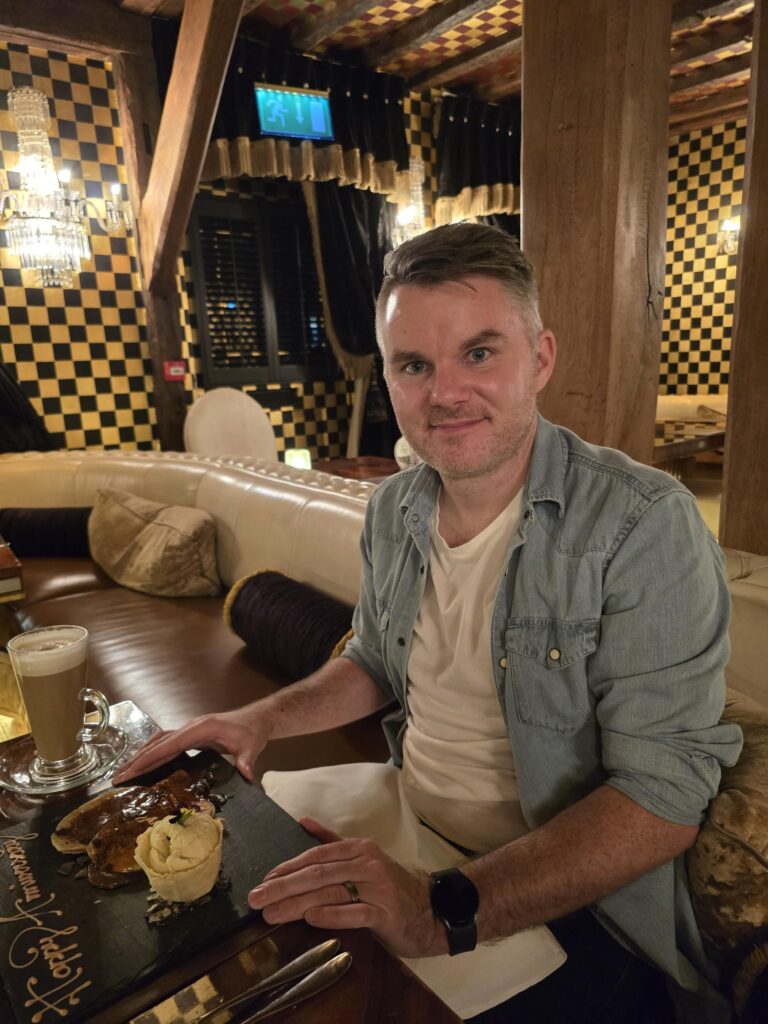
“In 2017, I started experiencing acid reflux, which was thought to be caused by a hiatus hernia (when part of the stomach bulges up through the diaphragm into the chest cavity). For the next few years, I took prescribed anti-acid medication to help with the symptoms.
In 2021, I began to struggle with swallowing. I thought I was eating too quickly or that it could be down to what I was eating. Never did I think it could be something more serious. Over several weeks, my symptoms worsened. I booked a doctor’s appointment, and my journey to my achalasia diagnosis began.”
When were you diagnosed with achalasia?
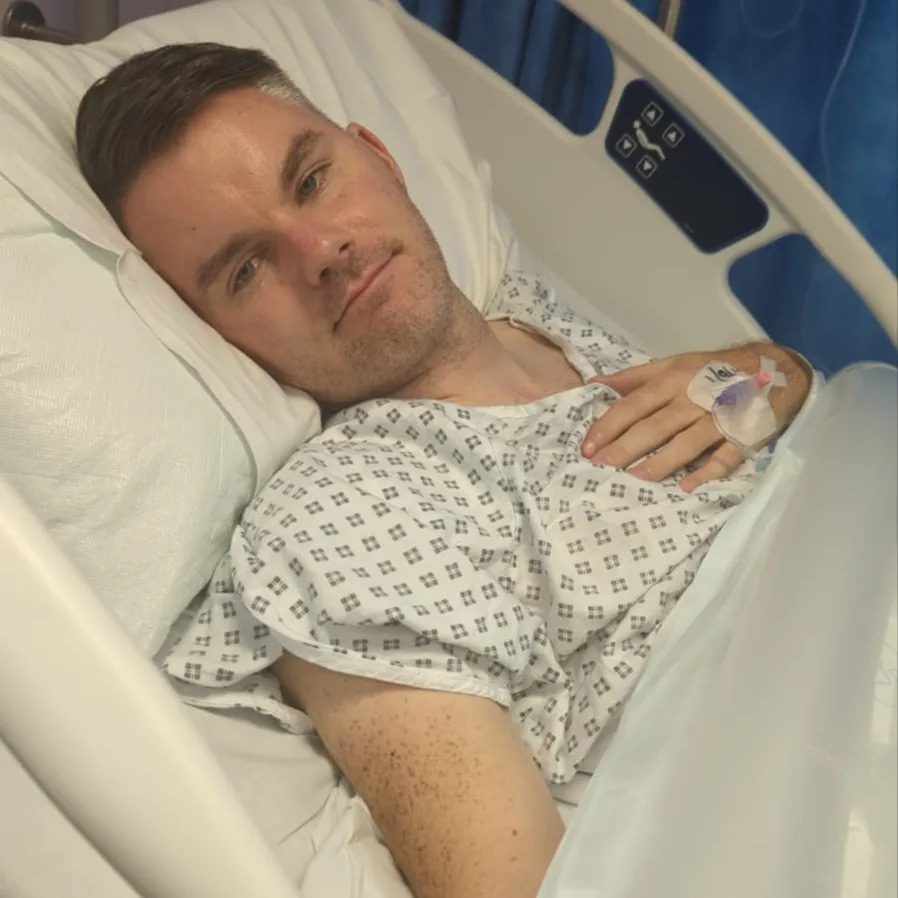
“On my birthday in 2022, I received my achalasia diagnosis… Not quite the present I had in mind! In the months before diagnosis, I underwent numerous medical tests.
These included around four endoscopies (a thin tube with a small camera on the end inserted via the mouth), a barium meal test (this involves drinking some barium liquid, which will show up your oesophagus (food pipe), stomach and first part of the small intestine on x-ray) and a 24-hour pH manometry test (where a thin tube is placed in the gullet through the throat to measure acid reflux in the gullet, measure pressure waves and muscle contractions to check their effectiveness in pushing contents through).”
How did you feel when you received your achalasia diagnosis?
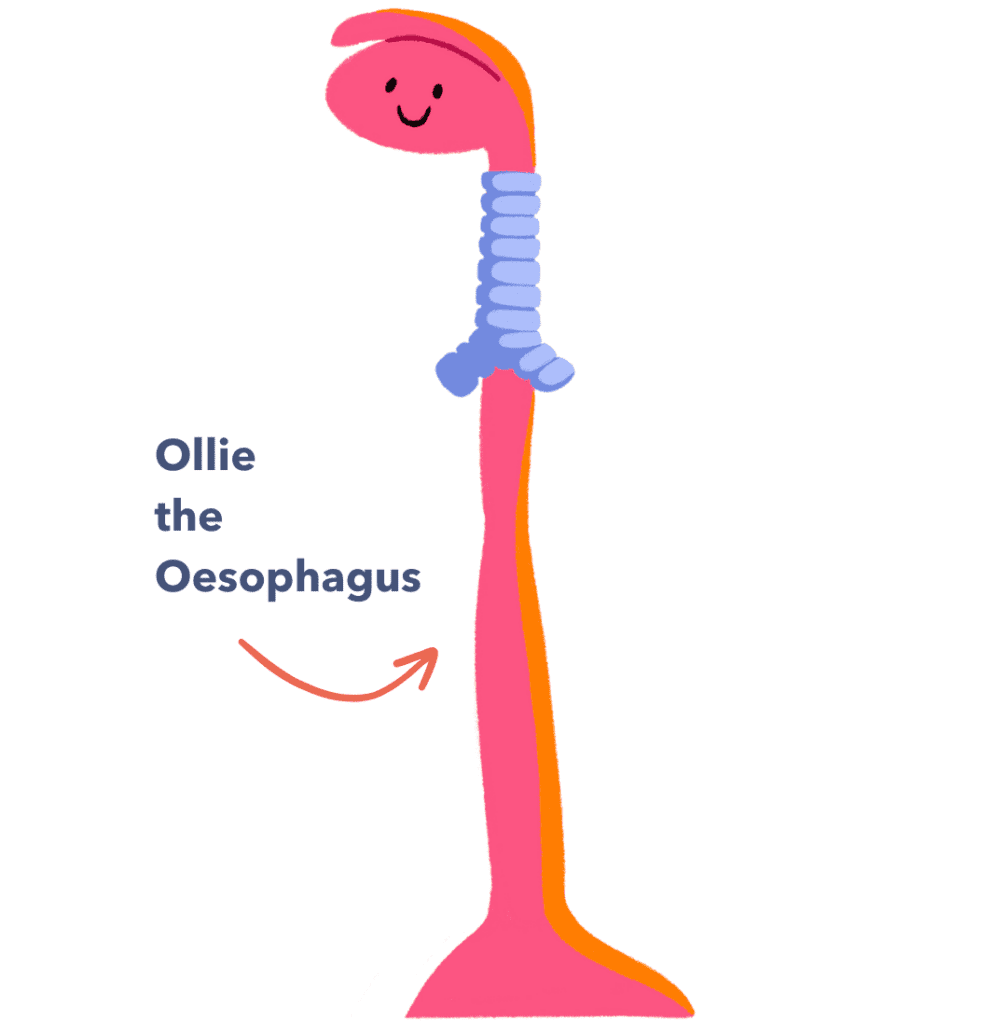
“The day I was diagnosed, a wave of emotions hit me: relief, sadness, anxiety and extreme fear. The news completely floored me. I was glad to have answers and a way forward, finally, but I was also overwhelmed by uncertainty. What did it all mean? What would come next?”
Is there an experience with achalasia that sticks in your mind?
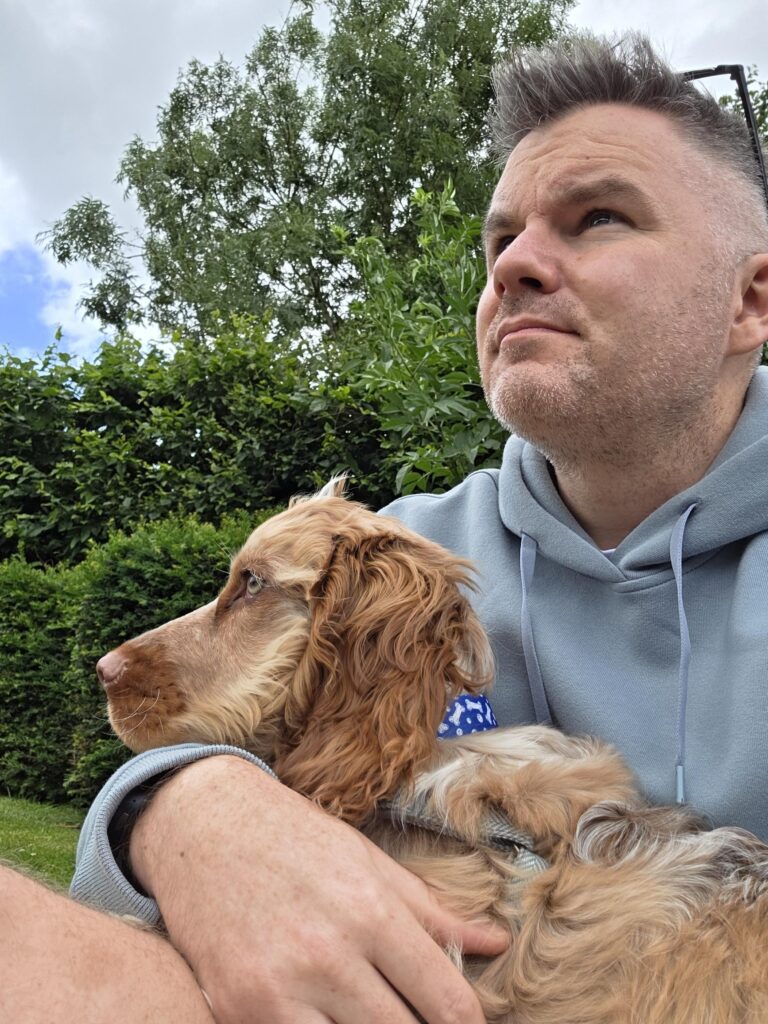
“There are two things that really stand out to me.
The first was when I started to stop socialising, stay at home and not go out for meals. I became obsessed with knowing where food or toilet facilities were. When you’re not able to eat properly, I found it took up so much of my headspace. I managed to go camping with my family and friends, and when eating together, I couldn’t keep my food down. I broke down in tears at the picnic bench.
Another memory is when I was at work. During the worst of it, I spent every lunch break regurgitating (bringing food back up). I was so exhausted. I eventually put myself on a liquid diet out of wanting to avoid food altogether out of fear. I’d even skip meals if I could.”
Note: If you feel you may need to go on to a liquid diet or have the urge to skip meals, it’s important to reach out to a medical professional for advice.
How does achalasia affect you in your daily life?
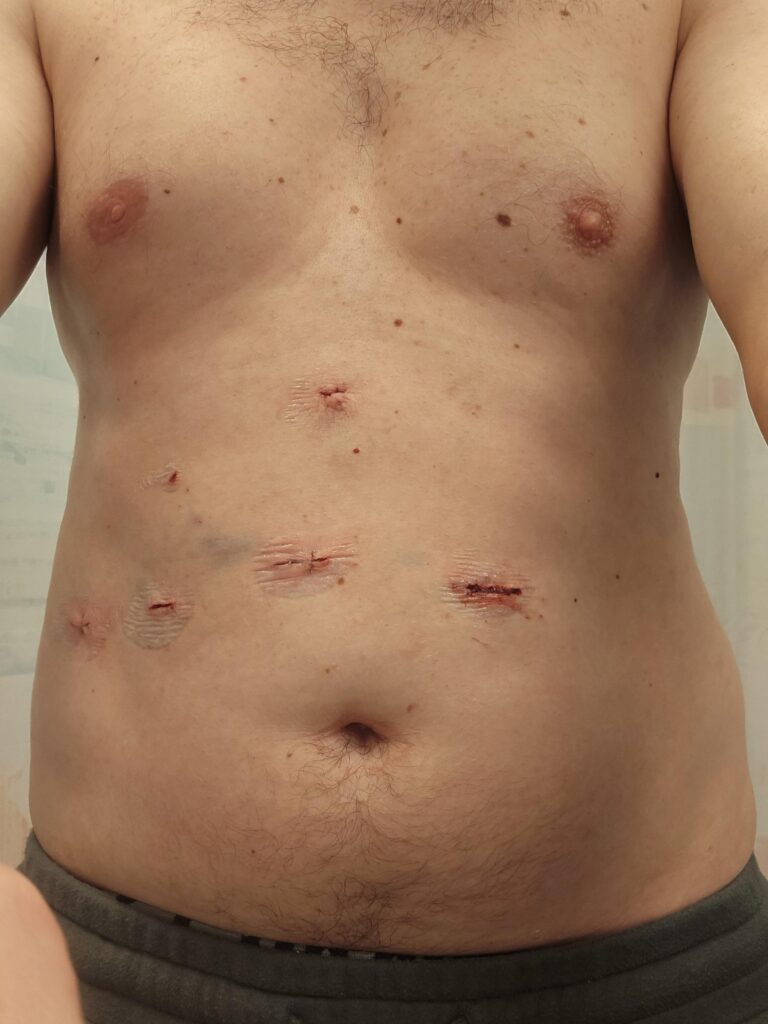
“Before my POEM surgery (a procedure where a tunnel within the oesophageal wall is created and muscles are cut to help the passage of food into the stomach) in 2022, my mental health was at its lowest. Since then, I’ve had anti-reflux surgery to reduce the acid in my oesophagus, which was confirmed by another 24-hour pH-manometry test and a hiatus hernia repair.
After a few months of recovery, I settled into my new “normal”. Now, I can eat almost anything, and I feel like a massive weight has been lifted. That said, recovery hasn’t been without its hiccups. I still have the occasional flare-up (worsening of symptoms), but I know which foods are likely to cause me issues.”
What would you tell someone who has just been diagnosed with a digestive condition, like achalasia?
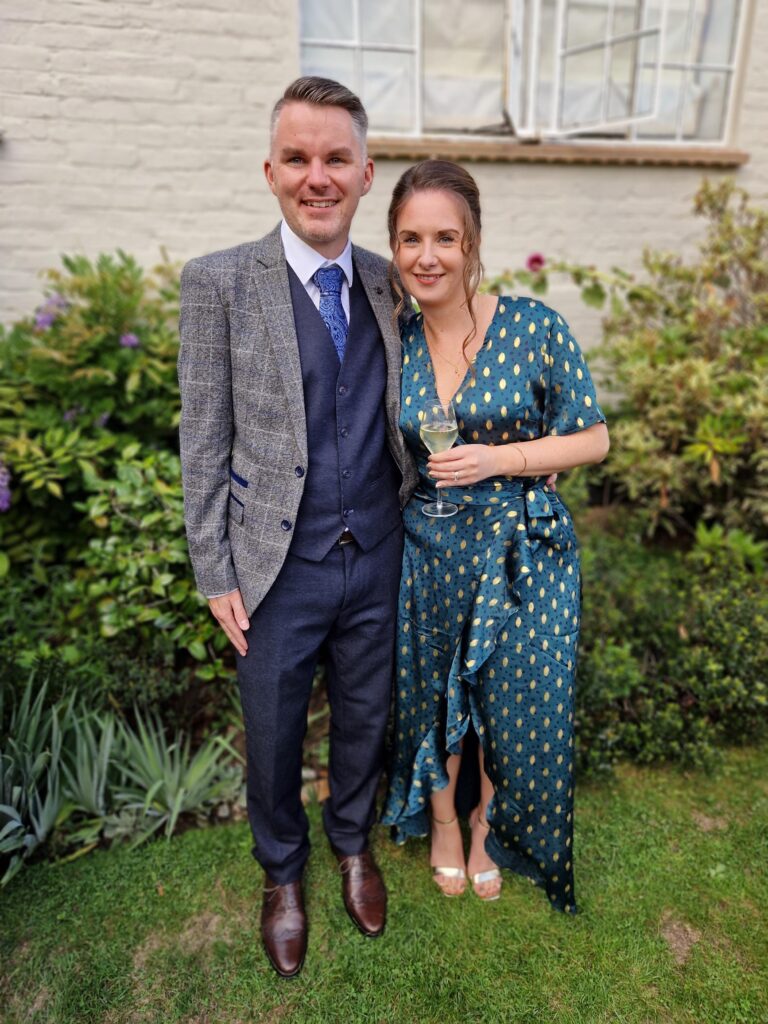
“You’re not alone. Even though achalasia is an uncommon condition, affecting around 1 in 100,000 people, there are support groups online that I find really useful. Even if you’re not ready to post on them or engage in the comments, just reading others’ experiences can be incredibly reassuring.”
Why are you sharing your story today?
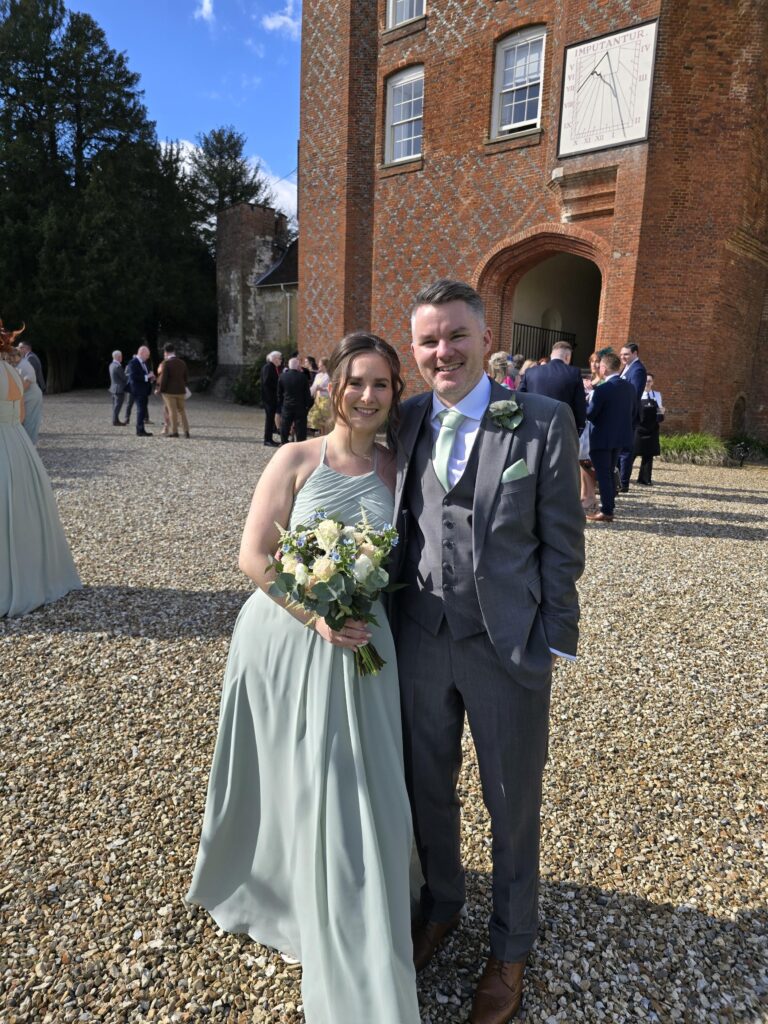
“If my story helps even one person, I’ll feel a sense of accomplishment. During my toughest times, reading about others going through the same gave me the encouragement I needed. I also want people to know that, although there is no cure, there are procedures that can help. It’s important to explore medical help and reach out to your doctor if you have any symptoms of achalasia or something doesn’t feel right.”
What are your hopes for the future?
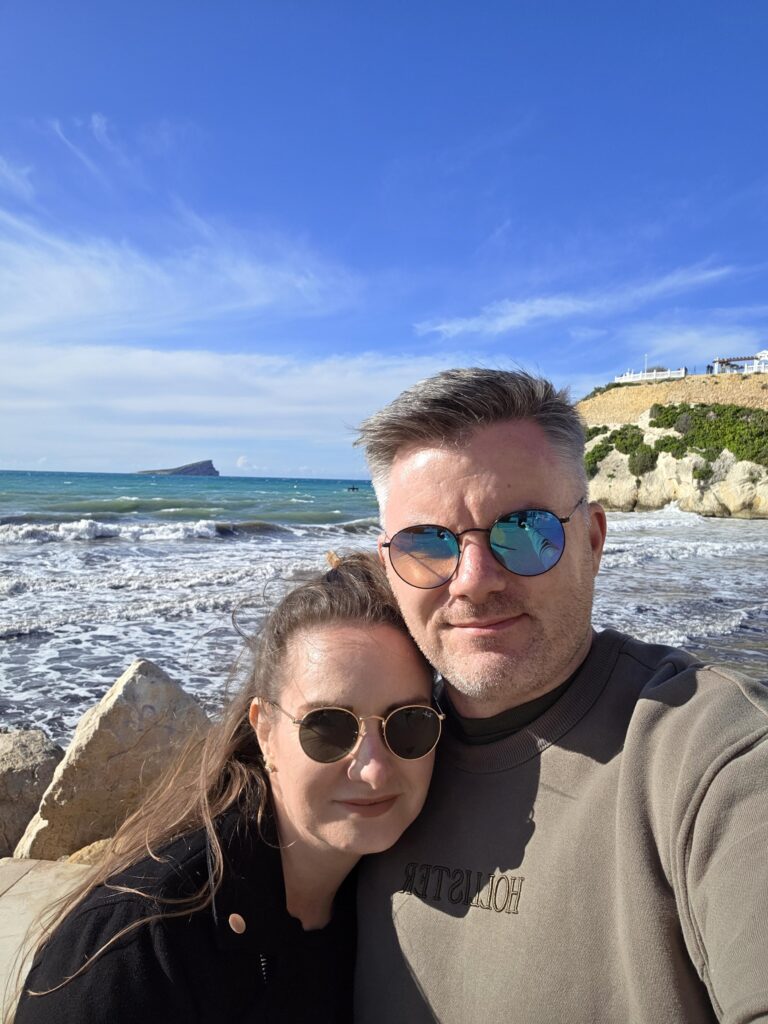
“A cure would be amazing! But for now, we need more awareness. Achalasia is a rare condition that isn’t getting the attention it deserves. There have been more government discussions in recent months, which is encouraging, but there needs to be more. Too many people are still suffering in silence.”
About Guts UK
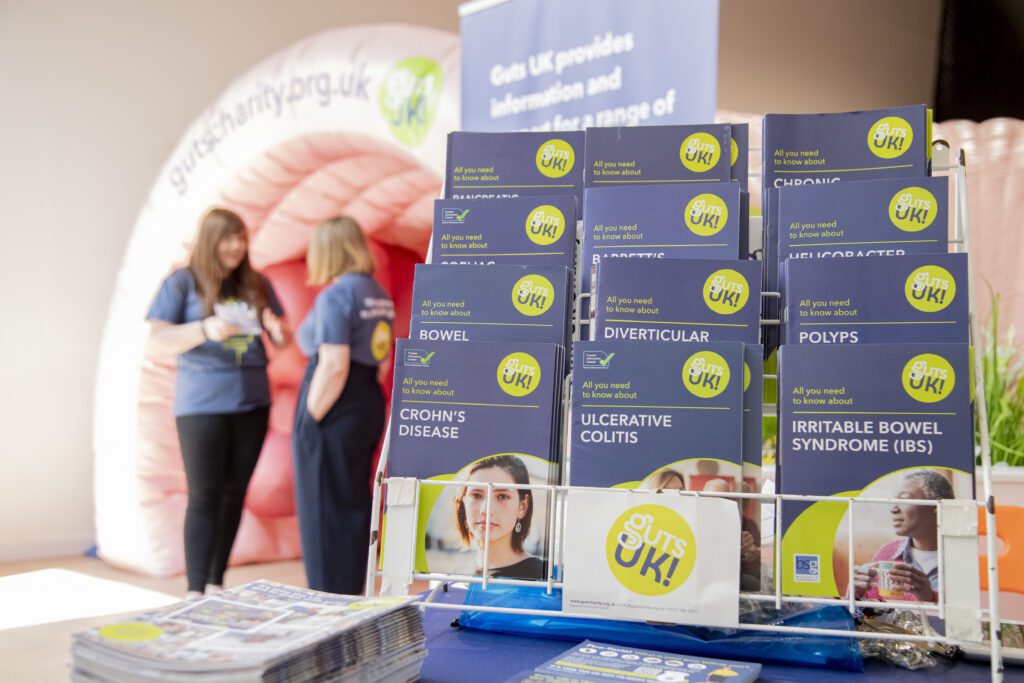
Guts UK is the national charity for the digestive system and the only UK charity funding research into the whole digestive system.
People are suffering. People are dying. All because of a lack of knowledge about our guts. Guts UK exists to change that.
With new knowledge, we will end the pain and suffering for the millions affected by digestive diseases. Please consider donating today. Your donation will help fund research leading to earlier diagnoses, kinder treatments and ultimately, a cure.
